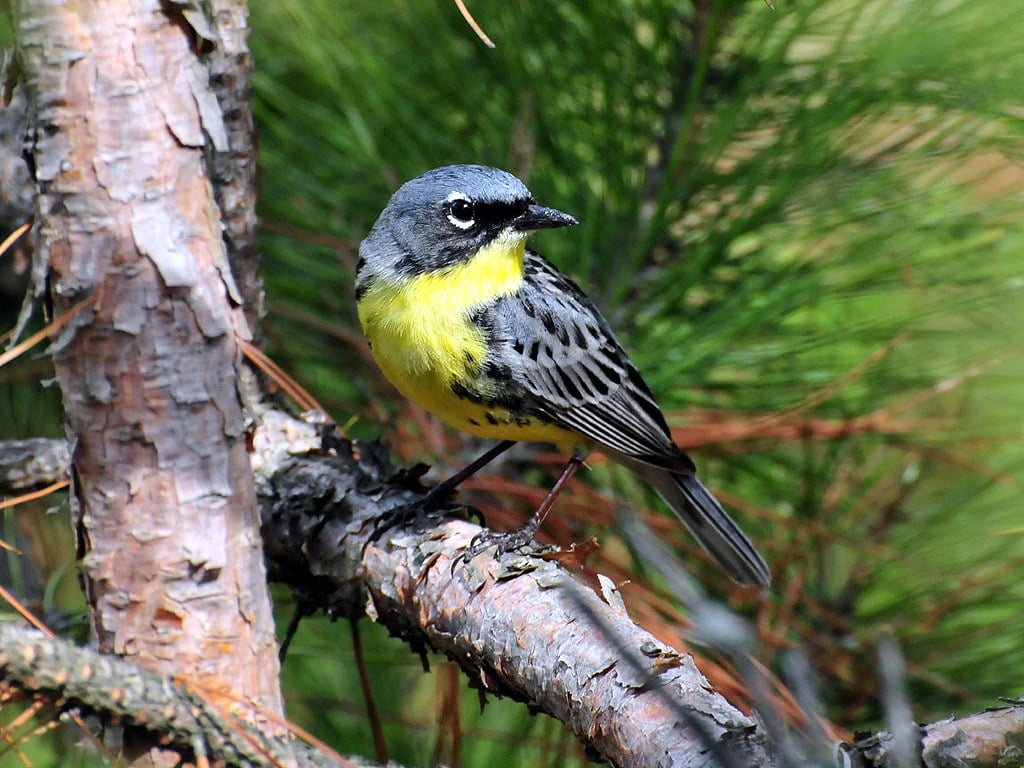
Detroit Audubon has rebranded itself the Detroit Bird Alliance. The move is part of a partnership with three bird conservation organizations in the Midwest, previously known as Chicago Audubon, Detroit Audubon, and Madison Audubon, which are changing their names to Chicago Bird Alliance, Detroit Bird Alliance, and Badgerland Bird Alliance, respectively.
The rebrand comes as Audubon chapters across the country grapple with the controversial legacy of John James Audubon, who owned slaves and dabbled in eugenics, and his name’s negative connotations for many community members.
Detroit Audubon member Jim Bull, who grew up with a deep love for birds and pursued a career in conservation, expressed his support for the name change in March.
“The more I learn about John James Audubon, the more I’m convinced that keeping that name is a hindrance to our growing and going forward and being more inclusive,” he told Planet Detroit.
Adopting the shared “Bird Alliance” moniker underscores the collaborative nature of conservation efforts, according to Gretchen Abrams, the Executive Director of Detroit Bird Alliance, formerly known as Detroit Audubon.
“Our approach has always been to bring nature and people together in a way that serves both. It was important for us to collaborate with other Audubon chapters—especially those in our region—in adopting a name that unifies our members and unifies us as organizations,” she said in a statement.
Despite the name changes, all three organizations will maintain affiliations with the National Audubon Society, which opted to retain the “Audubon” name earlier this year.
“Our chapters believe that bird conservation should center on birds and collaboration rather than celebrate a historical figure aligned with systemic racism. We are happy to be part of a new group of chapters using this name and welcome other chapters, community members, and partners to join us in our work,” Judy Pollock, president of the newly named Chicago Bird Alliance, said in a statement.
This Midwest rebranding effort is part of a larger trend. Other chapters, including Golden Gate Bird Alliance and Birds Connect Seattle, have adopted new names to reflect their commitment to inclusivity and bird conservation. This marks a significant shift in the birding culture, emphasizing collaboration and inclusivity in bird conservation.
Following National Audubon’s decision to retain its name, local chapters, including Detroit Audubon, considered their options.
“Detroit Audubon was disappointed that [the national organization] did not take a leadership role in dropping the name,” Detroit Audubon Executive Director Gretchen Abrams told Planet Detroit in March. “And we believe birds will suffer more because of this poor decision.”
However, not everyone agrees with this stance. Jack Smiley, a long-time board member of Detroit Audubon and a former executive director, called the national organization’s decision to keep the name “pragmatic.”
“Audubon has a well-earned reputation of being non-partisan. It’s important to keep that distinction to be effective in the halls of Congress,” he wrote in an email to Planet Detroit in March.
This controversy within the Audubon Society reflects broader cultural divisions around race, identity, and historical memory in the United States. Amid this, the need for bird conservation is pressing more than ever. A 2022 report by the U.S. Committee of the North American Bird Conservation Initiative found that more than half of U.S. bird species are declining.

